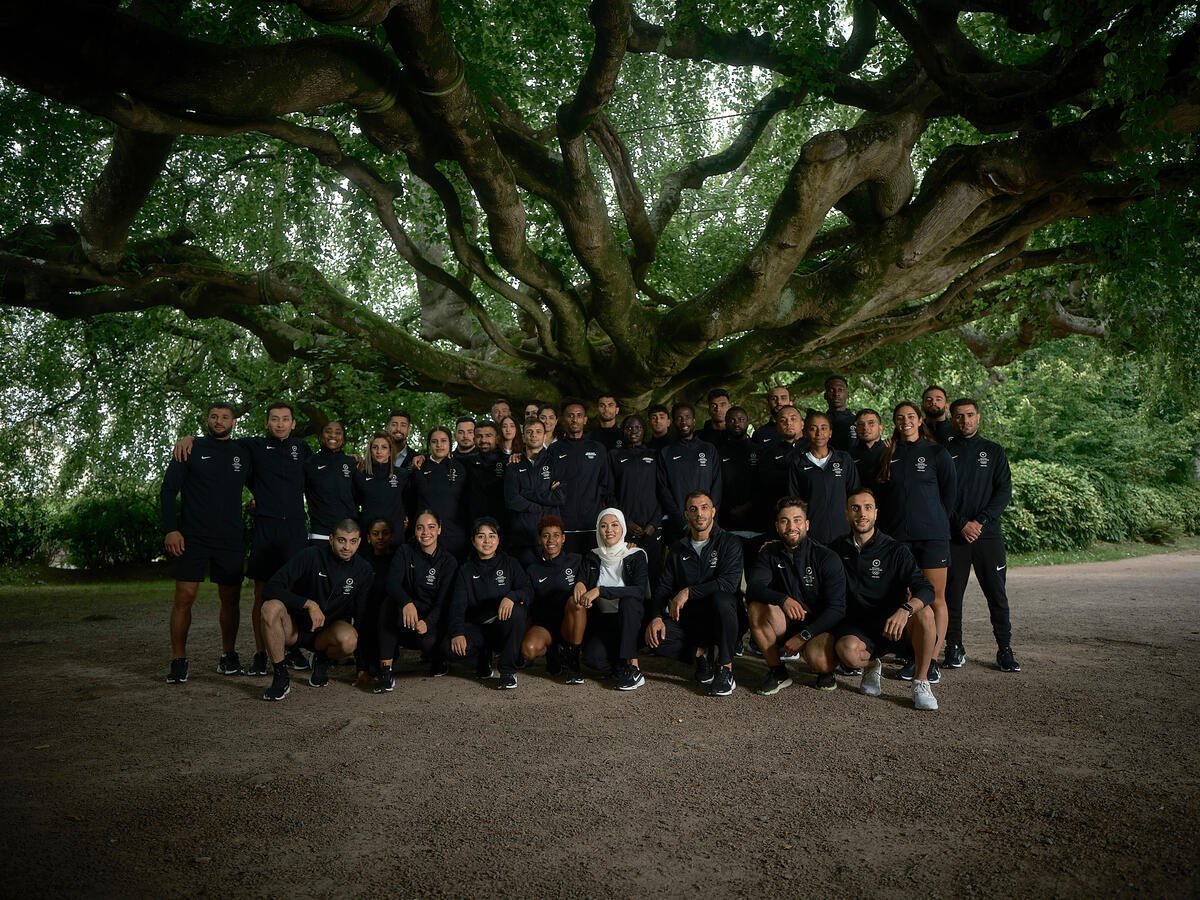London salutes local coverage of refugees
London salutes local coverage of refugees

LONDON, August 16 (UNHCR) - Refugees and asylum seekers are the subjects of frequent, negative coverage in some British newspapers, reporting that has contributed towards making them targets of public hostility and exclusion, according to a survey commissioned by London's mayor.
In an effort to turn around some of the hostile coverage and highlight good practices by sections of London's press, Mayor Ken Livingstone recently launched the London Local Press Awards to draw positive attention to the contributions made by refugees and asylum seekers to London's thriving ethnic mosaic.
The initiative is part of an effort by the Greater London Authority to spotlight good practice in reporting on refugee and asylum issues that helps foster a more positive context contributing to the safety of asylum seekers and refugees, and good community relations.
Speaking at the recent ceremony for the newly established London Local Press Awards, Mayor Livingstone said he wanted to honour achievements by London's local papers reporting on refugee and asylum issues and the challenges the exiles face in adapting to life in the United Kingdom.
"The media has a responsibility to present a fair and accurate picture of London and its diversity," said Livingstone. "These awards aim to recognize those local newspapers which are acting in a more responsible way."
The decision to launch the Local Press Awards with support from UNHCR, the Metropolitan Police Authority and the National Union of Journalists grew out of a study commissioned by the mayor that examined media images of asylum seekers and refugees.
The 2004 report, "Media Image, Community Impact", noted that unbalanced and inaccurate coverage in the national press is likely to cause fear and tension within communities across London. It said that increased community tensions can trigger incidents of racial harassment of asylum seekers.
Among the Local Press Awards winners were London's Highbury and Islington Express, which claimed an award in the news reports category, while the Wembley Observer picked up the prize for background and comment material. Al-Muntada, an Iraqi community paper, triumphed in the news, comment/visual coverage category.
East End Life, London's only weekly council newspaper covering the ethnically diverse Brick Lane neighbourhood which has seen refugee arrivals since the 17th century, was recognised for its coverage in the visual material category.
"This award means a lot to East End Life," said the newspaper's ecstatic editor, Laraine Clay. "The GLA [Greater London Authority] award is a tribute to the generations of people who have sought refuge here and to those who have welcomed them."
Bemma Donkoh, UNHCR's representative in the UK, said the awards ceremony can help Londoners better understand and sympathise with the refugees and asylum seekers living in the city.
"This event is about ensuring that the stories of the refugees and asylum seekers living amongst us, and the reality of their plight, get the recognition they deserve," Donkoh said. "It is also about encouraging objective and constructive reporting and discussion on how our society deals with the issues surrounding the complex migration movements of our present age."
In her speech at the awards, Donkoh said that when the media give refugees and asylum seekers a chance to tell their own stories, "you permit powerful images about the value of asylum to reach the wider public." She said UNHCR hopes other communities across the UK and governments elsewhere in Europe would emulate London's example and do more to ensure that refugees are integrated.
A member of the judging panel for the awards, Shami Chakrabarti of Liberty, said the London Local Press Award was a breath of fresh air as it was about celebrating the positive side of refugees.
Tensions among the UK's different ethnic communities were further heightened recently in the wake of the appalling July 7 bombing attacks in London that killed 52 people, and a series of attacks two weeks later, according to the Metropolitan Police.
By Danielle Bersch and Ahmed Momoh
UNHCR London





